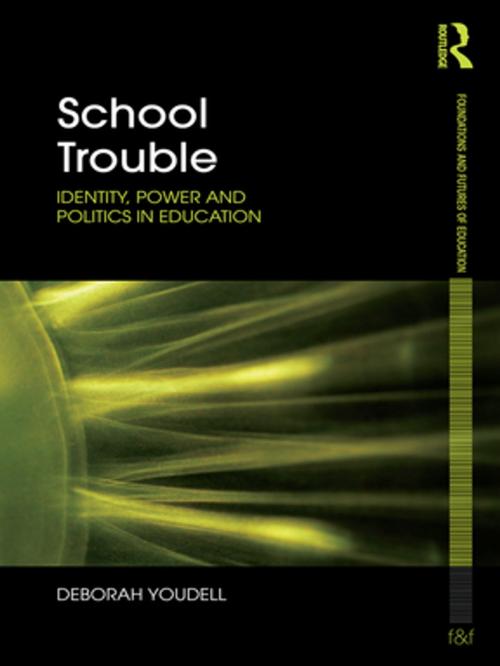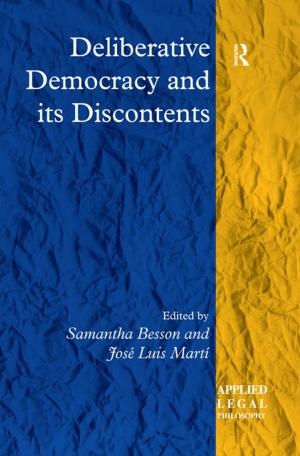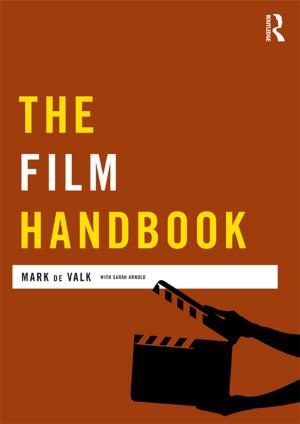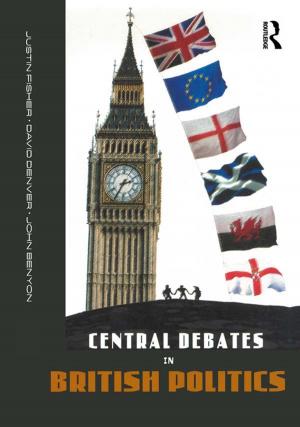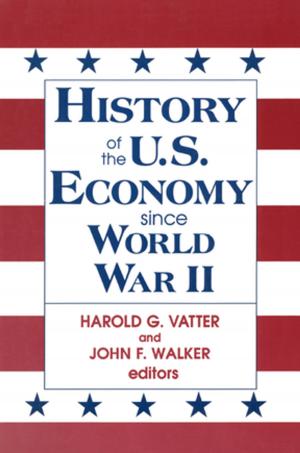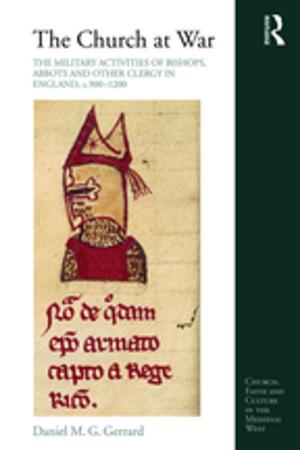School Trouble
Identity, Power and Politics in Education
Nonfiction, Reference & Language, Education & Teaching, Educational Theory, Educational Reform, Philosophy & Social Aspects| Author: | Deborah Youdell | ISBN: | 9781136884177 |
| Publisher: | Taylor and Francis | Publication: | November 1, 2010 |
| Imprint: | Routledge | Language: | English |
| Author: | Deborah Youdell |
| ISBN: | 9781136884177 |
| Publisher: | Taylor and Francis |
| Publication: | November 1, 2010 |
| Imprint: | Routledge |
| Language: | English |
What is the trouble with schools and why should we want to make ‘school trouble’?
Schooling is implicated in the making of educational and social exclusions and inequalities as well as the making of particular sorts of students and teachers. For this reason schools are important sites of counter- or radical- politics. In this book, Deborah Youdell brings together theories of counter-politics and radical traditions in education to make sense of the politics of daily life inside schools and explores a range of resources for thinking about and enacting political practices that make ‘school trouble’.
The book offers a solid introduction to the much-debated issues of ‘intersectionality’ and the limits of identity politics and the relationship between schooling and the wider policy and political context. It pieces together a series of tools and tactics that might destabilize educational inequalities by unsettling the knowledges, meanings, practices, subjectivities and feelings that are normalized and privileged in the ‘business as usual’ of school life. Engaging with curriculum materials, teachers’ lesson plans and accounts of their pedagogy, and ethnographic observations of school practices, the book investigates a range of empirical examples of critical action in school, from overt political action pursued by educators to day-to-day pedagogic encounters between teachers and students. The book draws on the work of Michel Foucault, Judith Butler, Ernesto Laclau and Chantel Mouffe, and Gilles Deleuze and Felix Guattari to make sense of these practices and identify the political possibilities for educators who refuse to accept the everyday injustices and wide-reaching social inequalities that face us.
School Trouble appears at a moment of political and economic flux and uncertainty, and when the policy moves that have promoted markets and private sector involvement in education around the globe have been subject to intense scrutiny and critique. Against this backdrop, renewed attention is being paid to the questions of how politics might be rejuvenated, how societies might be made fair, and what role education might have in pursing this. This book makes an important intervention into this terrain. By exploring a politics of discourse, an anti-identity politics, a politics of feeling, and a politics of becoming, it shows how the education assemblage can be unsettled and education can be re-imagined. The book will be of interest to advanced undergraduate and postgraduate students and scholars in the fields of education, sociology, cultural studies, and social and political science as well as to critical educators looking for new tools for thinking about their practice.
What is the trouble with schools and why should we want to make ‘school trouble’?
Schooling is implicated in the making of educational and social exclusions and inequalities as well as the making of particular sorts of students and teachers. For this reason schools are important sites of counter- or radical- politics. In this book, Deborah Youdell brings together theories of counter-politics and radical traditions in education to make sense of the politics of daily life inside schools and explores a range of resources for thinking about and enacting political practices that make ‘school trouble’.
The book offers a solid introduction to the much-debated issues of ‘intersectionality’ and the limits of identity politics and the relationship between schooling and the wider policy and political context. It pieces together a series of tools and tactics that might destabilize educational inequalities by unsettling the knowledges, meanings, practices, subjectivities and feelings that are normalized and privileged in the ‘business as usual’ of school life. Engaging with curriculum materials, teachers’ lesson plans and accounts of their pedagogy, and ethnographic observations of school practices, the book investigates a range of empirical examples of critical action in school, from overt political action pursued by educators to day-to-day pedagogic encounters between teachers and students. The book draws on the work of Michel Foucault, Judith Butler, Ernesto Laclau and Chantel Mouffe, and Gilles Deleuze and Felix Guattari to make sense of these practices and identify the political possibilities for educators who refuse to accept the everyday injustices and wide-reaching social inequalities that face us.
School Trouble appears at a moment of political and economic flux and uncertainty, and when the policy moves that have promoted markets and private sector involvement in education around the globe have been subject to intense scrutiny and critique. Against this backdrop, renewed attention is being paid to the questions of how politics might be rejuvenated, how societies might be made fair, and what role education might have in pursing this. This book makes an important intervention into this terrain. By exploring a politics of discourse, an anti-identity politics, a politics of feeling, and a politics of becoming, it shows how the education assemblage can be unsettled and education can be re-imagined. The book will be of interest to advanced undergraduate and postgraduate students and scholars in the fields of education, sociology, cultural studies, and social and political science as well as to critical educators looking for new tools for thinking about their practice.
